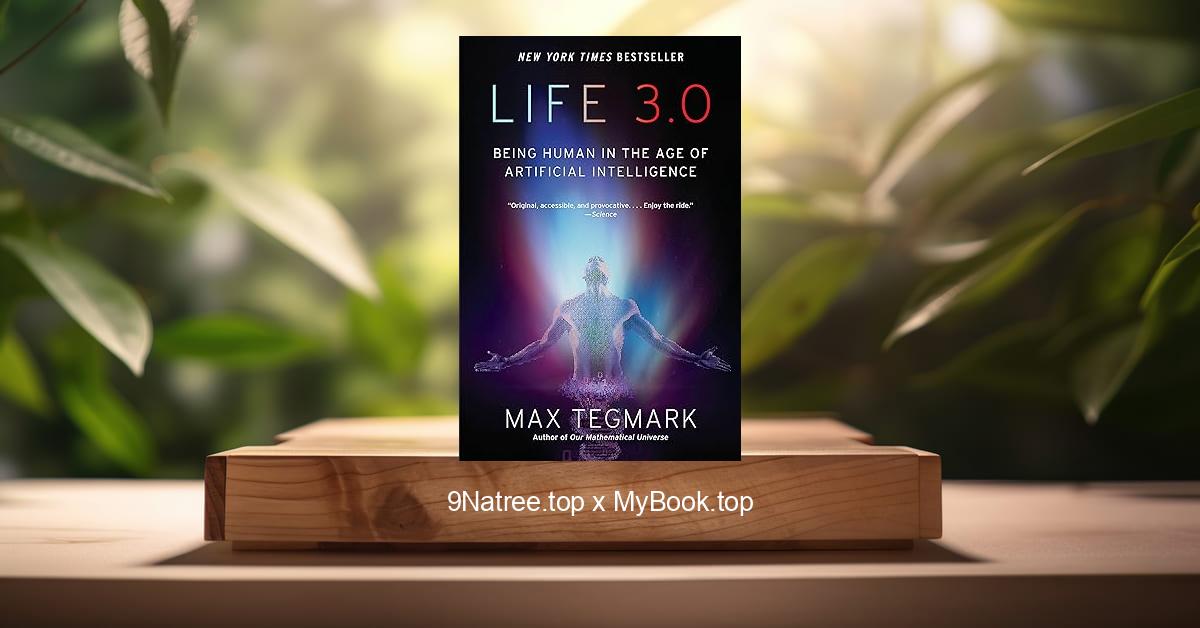Show Notes
Buy on Amazon: https://www.amazon.com/dp/B08QMFMJ1H?tag=9natree-20
Read more: https://mybook.top/read/B08QMFMJ1H/
#artificialintelligence #futuretechnology #ethicalAI #economictransformation #AIinhealthcare #geopoliticalshifts #humanAIcoexistence #KaiFuLee
These are takeaways from this book.
Firstly, The Coexistence of Humans and AI, In AI 2041, Lee and Qiufan skillfully navigate the intricate dynamics between humans and AI, presenting scenarios where these entities coexist in harmony, conflict, and complex interdependence. This theme draws attention to the evolving relationship between mankind and machines, emphasizing the potential for AI to augment human abilities while also raising concerns about dependency, privacy, and the loss of jobs. The narratives explore the idea that this coexistence could lead to profound societal changes, including shifts in the workforce, new forms of entertainment, and altered social structures. Through these stories, the authors provoke reflection on how we can prepare for a future where AI's influence permeates every aspect of our lives, challenging us to consider the ethical dimensions of our intertwined destinies with AI.
Secondly, Ethical Implications of AI, One of the most compelling aspects of 'AI 2041' is its deep dive into the ethical considerations surrounding artificial intelligence. The stories showcase myriad ways in which AI's integration into daily life raises tough ethical questions regarding privacy, autonomy, and decision-making. From algorithms that predict human behavior to AI judges in courtrooms, the book portrays a future where the line between machine judgment and human ethics becomes increasingly blurred. These narratives serve as a cautionary tale, urging readers to contemplate the moral responsibilities of creators and users of AI technologies. They highlight the need for robust ethical frameworks and governance structures to ensure AI's development benefits society as a whole, mitigating risks and safeguarding against potential abuses.
Thirdly, Economic Transformations Driven by AI, The book meticulously outlines the economic transformations that could unfold due to rapid advancements in AI technology. The envisaged scenarios span widespread automation, changes in employment patterns, and the emergence of new industries. This discussion is crucial in understanding the dual-edged nature of AI: on one hand, offering unprecedented efficiency and opportunities for economic growth, while on the other, posing significant challenges to labor markets and economic equality. Lee and Qiufan urge readers to consider how AI might exacerbate or alleviate socio-economic disparities, highlighting the importance of strategic planning and policy-making to harness AI's potential for sustainable development and wealth distribution. The narratives call for a proactive approach to education and re-skilling, enabling individuals to thrive in the evolving economic landscape.
Fourthly, AI in Healthcare, AI 2041 doesn't shy away from exploring the transformative potential of AI in healthcare. Through vivid futuristic scenarios, the authors illustrate how AI can revolutionize diagnostics, treatment, and patient care, making healthcare more accessible, efficient, and personalized. These stories propose a future where AI-powered systems predict diseases before symptoms appear, tailor treatments to individual genetic profiles, and provide continuous health monitoring. This vision fosters optimism about overcoming current healthcare challenges, such as disparities in access and the burden of chronic diseases. However, it also prompts critical discussions about data privacy, the doctor-patient relationship, and the ethical use of AI in life-and-death decisions. The book encourages a balanced perspective, recognizing AI's potential to enhance healthcare while acknowledging the need for careful oversight and ethical considerations.
Lastly, Global Impact and Geopolitical Shifts, Lee and Qiufan extend their exploration to the global stage, examining how AI could influence geopolitics, international relations, and global governance. The narratives depict a world where AI-driven innovations not only redefine economic power dynamics but also become pivotal in environmental conservation, global security, and cultural exchange. This theme underscores the importance of international collaboration in the development and regulation of AI technologies to prevent an arms race or imbalances that could threaten global stability. The authors advocate for a future where nations work together to share the benefits of AI, fostering a more equitable and secure world. The discussions around AI's role in global affairs are a reminder of the technology's far-reaching implications, beyond individual industries or countries, necessitating a collective and strategic approach to its development and application.
In conclusion, AI 2041: Ten Visions for Our Future' is a must-read for policymakers, tech enthusiasts, futurists, and anyone curious about the trajectory of artificial intelligence and its intersection with human society. Kai-Fu Lee and Chen Qiufan skillfully blend storytelling with deep technical and philosophical insights, making complex AI concepts accessible and compelling. This book serves as a valuable guide for navigating the opportunities and challenges that lie ahead, encouraging readers to critically engage with the potential of AI to reshape our future. By stimulating reflection on ethical, economic, and societal implications, Lee and Qiufan offer a balanced perspective on preparing for a future where AI plays a central role in our lives. It's a thought-provoking read that not only informs but also inspires action towards a more inclusive, equitable, and humane future shaped by intelligent technology.
![[Review] AI 2041: Ten Visions for Our Future (Kai-Fu Lee) Summarized](https://episodes.castos.com/660078c6833215-59505987/images/1699846/c1a-085k3-p8009mo8cw0o-lagjk4.jpg)




